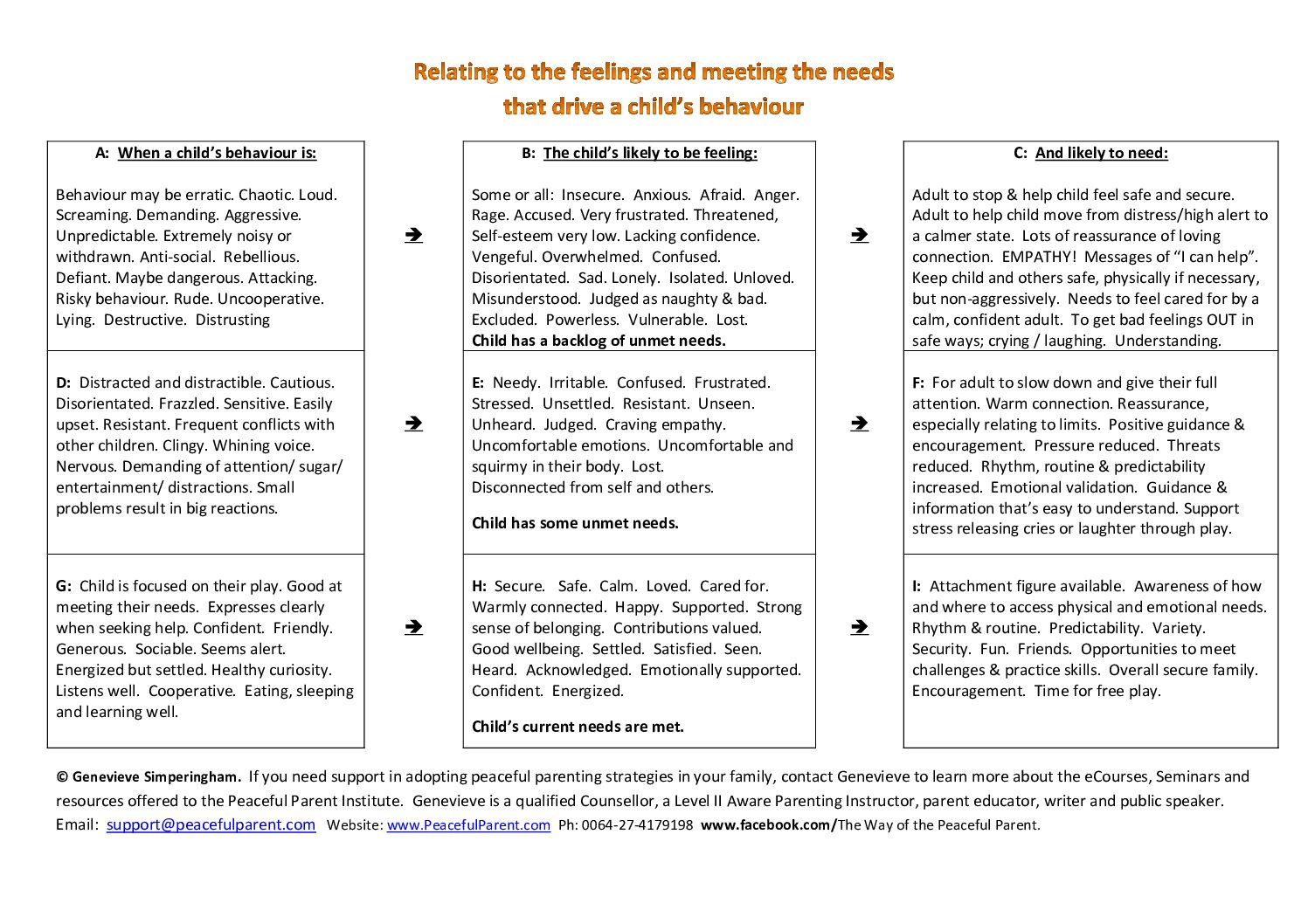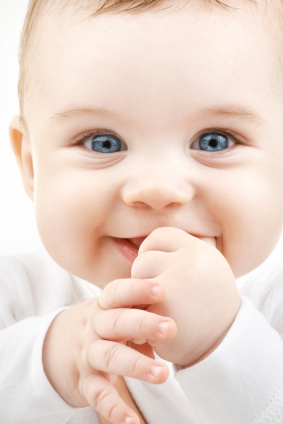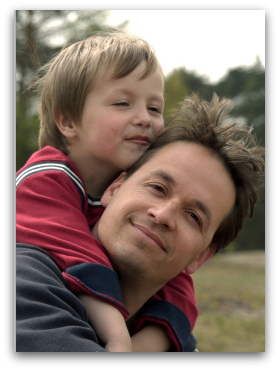First published in The Natural Parent Magazine
It takes a lot of hard work to become a more mindful parent and create true emotional safety in the family.
When stressed and under pressure, it can be too easy to just say what’s on our minds, and to seek cooperation through orders, threats or guilt trips, “just do it!”, “if you don’t do it, then … you just don’t want to find out!“, “I’m at my wits end here and you’re not helping!”, “I’ll buy you an ice-cream if you …. “. But all parents who work hard to think creatively and self-educate, know well that it takes bucket loads of self-discipline to change even some of our communication within the family.
It’s probably safe to assume that you can relate because you’re actually reading articles like this! So, you’ll know well the discomfort and restraint involved in containing those urges to blurt out criticisms like: “Why must you …!”. Or using demands and expressions of exasperation. Or even resorting to bribes when stress levels go through the roof! And yet, your levels of patience and peaceful parenting skills will likely vary from day to day.
Understandably, a parent really wants some evidence, or at least reassurance, that all their hard work is not in vain! Hopefully, this article will give you a bit of reassurance to keep on keeping on. Even if your child hasn’t transformed into that perfect specimen who ticks all the boxes of societal expectations! Which, should never have been the aim of the game for any parent in the first place!
Reframing your definition of success can really help!
The success of your peaceful parenting endeavours isn’t so much about your child becoming happily and gratefully cooperative in every instance. As much as that would of course make life dramatically easier. No matter how good the parent child connection is, the child still have their free will, their wishes, dislikes and emotions! They’re still going to feel disappointed about not watching that movie or eating that yummy treat. They’re still going to go through a BIG process of coming to terms with life with a new sibling, a new house or a new kindy. And they’re still going to be influenced by other people and by the dynamics they witness despite our best attempts to instil amazing values and habits.
Measure your success more by your behaviour, and less by your child’s.
Any increase in the frequency of you not losing it when you don’t gain the cooperation you (very understandably!!) desperately need is a success to be celebrated! Measure your success less by the number of times your child gets upset, and more by your capacity to keep your cool and respond with empathy. If you give yourself more credit for these moments, it just might help more than you imagine!
Also worth acknowledging is any increase in your child’s ability to express those strong emotions through tears or words and less through aggression, shutting down or defiance. It’s not about denying the tough stuff. But most of us can benefit from putting more focus on the small but significant improvements.
Things may get “worse” before they get better
A father who sought my help described that when his wife was leaving for work, their daughter struggled with the separation. She used to become very resistant and rebellious. I advised him to really turn up the dial on empathising with their daughter, both before, during and after her mum leaves. What happened was that their daughter started to have big tantrums, which understandably made them think that empathy was making things worse.
Yet in reality, the increased permission and support to let herself feel the deep sadness of separating from mum allowed her to feel safe to express those feelings. They also began to play lots of hide and seek, which provided another safe outlet for her fears and sadness, greatly reducing her separation anxiety! After a few big meltdowns around mum leaving for work, and lots of stress-dispelling laughter through play, their daughter became much more relaxed about mum leaving. When children feel safe to express their emotions without restraint, it allows them to resolve and move through their frustrations.
Unrealistic expectations create pressure for parent and child
Over the years, your child will go through big thinking, social, learning and emotional changes. These will inch-by-inch help them better master life’s challenges. A parent can go through a lot of stress and worry about their two-year-old refusing to share, or their four-year-old angrily throwing a toy. Your hormonally-charged twelve-year-old or teenager will seem to regress and again become so irrational. Yet overall, most children will continue to get better and better at managing their emotions and managing their time. They’ll continue to get better at problem-solving, developing impulse control, taking care of themselves and becoming more kind and considerate.
Whether your parenting style is authoritarian, peaceful, or permissive, your child will need your help to develop certain habits and skills. They will need help or reminding to brush their teeth or their hair hundreds of times until that magically liberating stage (for you AND them!) when they finally develop the habit themselves.
I asked nicely three times!
Commonly expressed frustration: “Peaceful parenting isn’t working for us. I talk to my child calmly and reasonably. But, it’s only when I yell or threaten to send her to her room that she suddenly does what she’s told!”. This is authoritarian rather than peaceful parenting and the instilled fear that gains that obedience comes at a high price. When a child anticipates yelling and threatening, it triggers their stress response. That stress leads to reactivity, resistance and power struggles.
Let’s imagine how an adult might feel in a similar situation. “Genevieve, I’ve read those relationship books, I’ve been practising active listening with my partner, showing so much more patience and empathy. Yet when we disagree, she just keeps insisting things happen her way until I start yelling. Then she yells back! I have no choice but to tell her she needs to go to our room until she’s cooled down. Your relationship advice just isn’t working for us!”.
When you feel the urge to yell or threaten your child, what’s needed is always the connection. But to reconnect with our child, we often need to first bring back some empathy for our own frustrations.
Parenting with PTSD, depression or anxiety is painfully difficult!
I often reflect to parents that their inability to not become enraged at their children is symptomatic of them being stretched beyond their limits. In exploring further, it often comes to light that the parent really is attempting the impossible. And that extra professional and community support is essential. Anxiety and depression can feel debilitating. Parenting can trigger unresolved pain from childhood. A traumatic birth can result in post-natal depression or anxiety that needs and deserves specific help. Maybe counselling, supplements or herbs can be a lifesaver! But certainly, having the struggles recognized and identified is often the first step in gaining the help needed.
Peaceful parenting can so easily get confused with permissive parenting
There is often some guilt that accompanies a parent’s newly acquired knowledge that their previous parenting style may have caused their child some insecurity. The parent now cringes to enforce any limits for fear of it shaming or stifling their child and hence further compromising the relationship. Yet it wasn’t the limits that caused the problems (assuming they were fair, and well thought out), but the methods of enforcing limits.
The parent is now bending over backwards, walking on eggshells, avoids saying “no” at all costs in attempts to avoid meltdowns. Yet limits help children develop their inner self-discipline. And just as importantly, the resulting big cries that limits tend to bring are often exactly what the child needs to return to balance. Their cries can release the pressure valve of all that built-up frustration and return the child to a more settled and balanced state.
The child’s messy behaviour isn’t always the parent’s fault!
When we see our child’s less than perfect behaviour and self-management as a negative reflection on us as a parent, it can make the parenting journey very stressful and discouraging. There are so many contributing factors to how your child is, who your child is, how they feel, what their needs are and how they behave. In this article, I’m touching on just some of the often unrecognised factors that can cause children to struggle.
Even if you get up early to do your meditation and yoga and get super centered and calm, even if you got a head start on your day the night before, even if you connect beautifully with your child and maintain saint-like patience; if your child is unwell or full of frustration, she’s likely to be as fragile as a little egg, and it won’t take much for her to break down!
Peaceful parenting can so easily get confused with permissive parenting
There is often some guilt that accompanies a parent’s newly acquired knowledge that their previous parenting style may have caused their child some insecurity. The parent now cringes to enforce any limits for fear of it shaming or stifling their child and hence further compromising the relationship. Yet it wasn’t the limits that caused the problems (assuming they were fair, and well thought out), but the methods of enforcing limits.
The parent is now bending over backwards, walking on eggshells, avoids saying “no” at all costs in attempts to avoid meltdowns. Yet limits help children develop their inner self-discipline. And just as importantly, the resulting big cries that limits tend to bring are often exactly what the child needs to return to balance. Their cries can release the pressure valve of all that built-up frustration and return the child to a more settled and balanced state.
The child’s messy behaviour isn’t always the parent’s fault!
When we see our child’s less than perfect behaviour and self-management as a negative reflection on us as a parent, it can make the parenting journey very stressful and discouraging. There are so many contributing factors to how your child is, who your child is, how they feel, what their needs are and how they behave. In this article, I’m touching on just some of the often unrecognised factors that can cause children to struggle.
Even if you get up early to do your meditation and yoga and get super centered and calm, even if you got a head start on your day the night before, even if you connect beautifully with your child and maintain saint-like patience; if your child is unwell or full of frustration, she’s likely to be as fragile as a little egg, and it won’t take much for her to break down!
Birth trauma
Children who are highly resistant or aggressive are often experiencing varying levels of anxiety or intense irritation that they or their parents may struggle to identify. Sometimes children are affected by parental conflict, past traumas, and big life changes. Trauma in utero or during birth can have a much bigger impact than is generally recognised. Children are much more sensitive to stress and trauma than we previously realised.
Underlying factors affecting behaviour
There are other often unidentified factors that may make it near impossible for the child to be the best version of themselves. These include learning difficulties, food intolerances and allergies. Your child may have very specific differences in how their brain functions. These need to be identified so that the parent can better set their child up for success. Examples are depression, anxiety or panic disorders or PTSD. Other examples are learning difficulties like dyslexia or dyspraxia, SPD, ADHD or ADD. The number of children on the ASD spectrum is continuing to rise.
Children who have Sensory Processing Disorder may have challenges with going to bed because the texture of the quilt is uncomfortable. Or with eating because of certain textures that they react to. SPD manifests differently for each child, but learning more about it can help at least to rule it out.
A diagnosis can help
Many more children are now being diagnosed with ADHD, ADD, depression, anxiety disorders and PTSD, or as being on the Autism Spectrum. When specific special needs haven’t yet been recognised, it can create a lot of confusion, frustration and distress for all involved. A diagnosis can be the beginning of a new path of exploring how to best support your child. And how to set them up for more success, helping them feel supported and cared for with their specific struggles. A diagnosis, just like diagnosing a physical ailment, can help parents to reduce their expectations. Hence reducing frustrations and allowing parents to be more specific and constructive in helping their child with their challenges.
The more we tune in to viewing the child’s behaviour in terms of unmet needs, the closer we get to discovering what the underlying factors may be. But regardless of whether your child’s challenges relate to any of the above. Be it stress in the family or mental, emotional or physical imbalances, there are more and more experts presenting scientific evidence linking food and mood, linking gut and brain imbalances.
Magic micronutrients!
One such person is Julia J. Rucklidge, PhD, a Professor at the University of Canterbury. Dr Rucklidge has dedicated the last decade to researching the connections between mental health and nutrition. She has rigorously investigated the role of micronutrients, probiotics and other nutrients like omega 3s in the expression of mental illness. Specifically ADHD, Bipolar Disorder, anxiety and more recently, stress and PTSD associated with the Canterbury earthquakes. Her data portrays an alarming picture of food choices serving as risk factors for all kinds of mental health issues. Yet, the good news is that the data also demonstrates hugely positive outcomes for the majority of children prescribed high enough dosages of micronutrients. With 80% showing marked improvement just in the first two months. Her findings challenge our current treatment regime for mental disorders.
Iodine deficiency
David Brownstein, M.D. is the author of several books on iodine and nutrition. He has lectured internationally to physicians about his success in treating patients using nutritional therapies. Brownstein says: “One of the most successful nutritional therapies is to correct iodine deficiency. My experience has shown iodine deficiency to be present in over 96% of the nearly 5,000 patients tested in my office.”
Brownstein asserts:
“ADHD is caused, or exasperated, by nutrient and hormonal imbalances, including iodine deficiency.”
“Closely monitored iodine supplementation in children with ADHD has been shown to reverse the effects, resolve behavioral problems and improve learning abilities.”
“It’s a public health disaster that’s unparalleled.”
Iodine deficiency is regarded by the World Health Organization as the most prevalent and easily preventable case of impaired cognitive development in children in the world. Sugar and refined carbohydrates break down quickly into glucose and can create blood sugar fluctuations. There are many symptoms associated with fluctuating blood sugar levels, difficulty listening, inability to focus, easily distracted, irritability, quick to frustration, hard to calm down, unexpected anger or lashing out, restlessness and not being able to sit still.
You may also like to read Genevieve’s article: Food, mood and sugar cravings. In it she describes the role of fluctuating blood sugar levels and the connection to children being picky eaters and subsequent food battles.
The nutrition thing is overwhelming!
The food mood connection is really confusing and daunting, and honestly it is for most parents! Maybe just start with keeping a food mood journal for a few days, for you and your child. It might be very interesting to notice any patterns that emerge. I’m a great believer in stable blood sugar levels leading to more stability in mood and well-being.
Peaceful parenting is an approach that supports exploring underlying reasons for misbehaviour, which can lead parents on a journey of discovery, often leading to improved lifestyle and subsequent improved physical, mental and emotional health for all family members. Embrace the change!
Genevieve Simperingham is a Psychosynthesis Counsellor, a Parenting Instructor and coach, public speaker, human rights advocate, writer and the founder of The Peaceful Parent Institute. Check out her articles, Peaceful Parenting eCourses, forums and one-year Peaceful Parenting Instructor Training through this website or join over 90,000 followers on her Facebook page The Way of the Peaceful Parent.










Hi! I am just finishing certification from the Jai Institute for Parenting to be a parenting coach. I came across you website and I am beyond impressed with your endless stream of relatable information and the way it is conveyed. It is my dream to be able to put myself out there in a manner such as this. I need to build confidence in how I put myself out there to those desperately in need of this work. I am looking for a mentor to help me do so. Is this something that is possible?! Can we talk?!
Thank you!
Robyn 917-579-3305 cell
Hi there Robyn,
I’m so glad that you’ve been gaining value from my articles. Perhaps it could be a good idea to have a chat, you can book a free 15 minute consultation through the website. Under the About tab on the main menu, click Contact then put in your time zone and see if you can find a time that works. It may be mid February before there’s open slots but if that’s not too long to wait, book it in, or we can communication through email.
Warmly, Genevieve
[…] might also like to read "When Peaceful Parenting Isn't Working What's Missing?" In it I address some of the more common issues that are often missed including some of the […]
[…] might also like to read: When Peaceful Parenting Isn't working, what's missing? Plus this list: "Basic […]
[…] she first contacted me, I identified that peaceful parenting was verging on being counterproductive unless she brought in the balance of developing more compassion for herself. For this committed […]